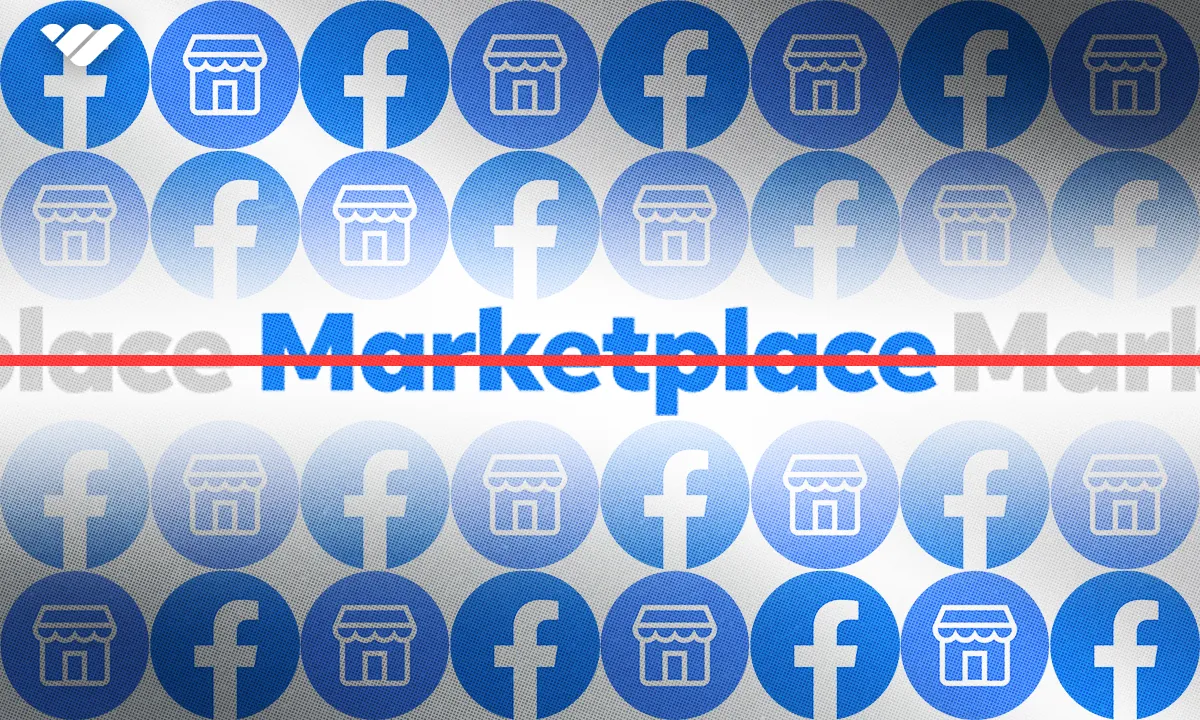Check out these 9 best Facebook Marketplace alternatives for your online business. Consider factors like user base, fees, product categories, payment, and shipping options to find the right platform that meets the needs of your business.
Key takeaways
- Choose your selling platform based on your product type, target audience reach, and acceptable fee structure.
- Local platforms like OfferUp and Nextdoor offer free listings, while global platforms like eBay charge fees but provide broader reach and buyer protection.
- Niche marketplaces like Etsy and Poshmark connect you with targeted buyers willing to pay more for specific product categories.
For many small businesses and individual sellers, Facebook Marketplace is a viable sales channel because it offers an easy-to-use marketplace option, good reach, and no listing fees. But despite its benefits, Facebook Marketplace also has some limitations that don’t make it the definitive choice for sellers looking for a low-cost sales avenue.
If you’re looking for an alternative place to sell your products or start an online store, we’ve got you covered.
Read on to discover the 9 best Facebook Marketplace alternatives for your online business.
What is Facebook Marketplace?
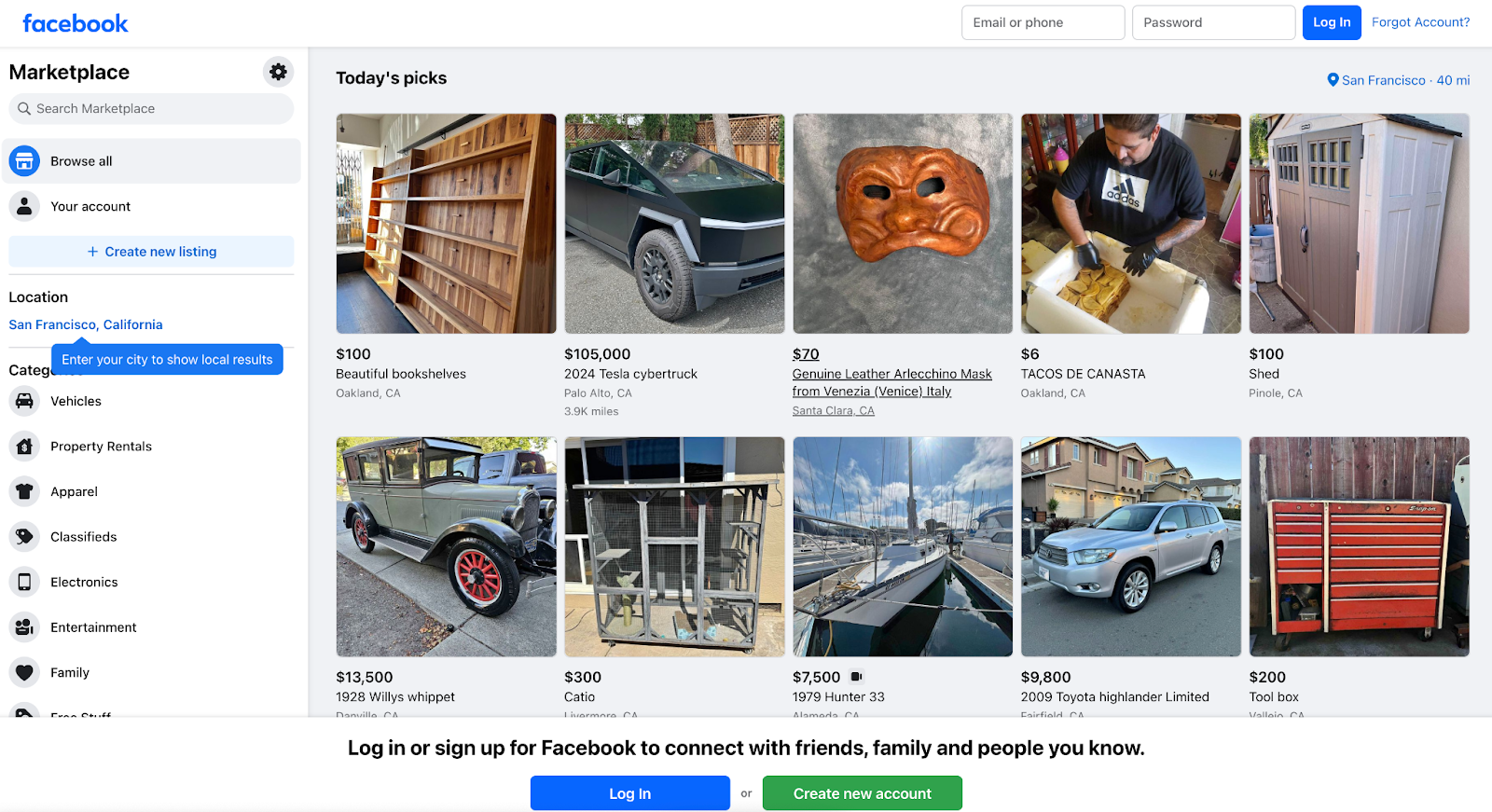
Facebook Marketplace is a platform within the Facebook app and website that allows users to buy and sell products. One of its defining features is its emphasis on local transactions, making it ideal for individuals or small businesses to sell items in their region, like second-hand goods or personal belongings.
Unlike Facebook Shop, designed for businesses looking to create a full online store with a larger reach, the Facebook Marketplace is considered a more casual platform. Buyers and sellers can communicate directly to arrange a transaction, typically for local pick-up. It’s incredibly cost-effective (with no listing fees) and the tool itself is very easy to use, only requiring a Facebook account to start selling.
Despite that, the Facebook Marketplace has a few disadvantages, like limited payment and shipping options—mostly because of its focus on local selling—which means transactions often need to be handled through cash or third-party apps like Venmo. The marketplace also has limitations when it comes to product listings, not accepting the sale of digital products or services and only allowing physical items in specific categories such as:
- Electronics: Phones, laptops, gaming consoles
- Apparel: Clothing and accessories
- Entertainment: Books, board games, music (physical objects only)
- Housing: Homes for sale or rent
- Home Goods: Furniture, house decor
- Vehicles: Cars, bikes, or motorcycles
What to Consider When Looking for a Facebook Marketplace Alternative
When searching for a Facebook Marketplace alternative, some key factors should be considered to ensure the platform meets the needs of your business. Pay attention to:
Its user base and reach
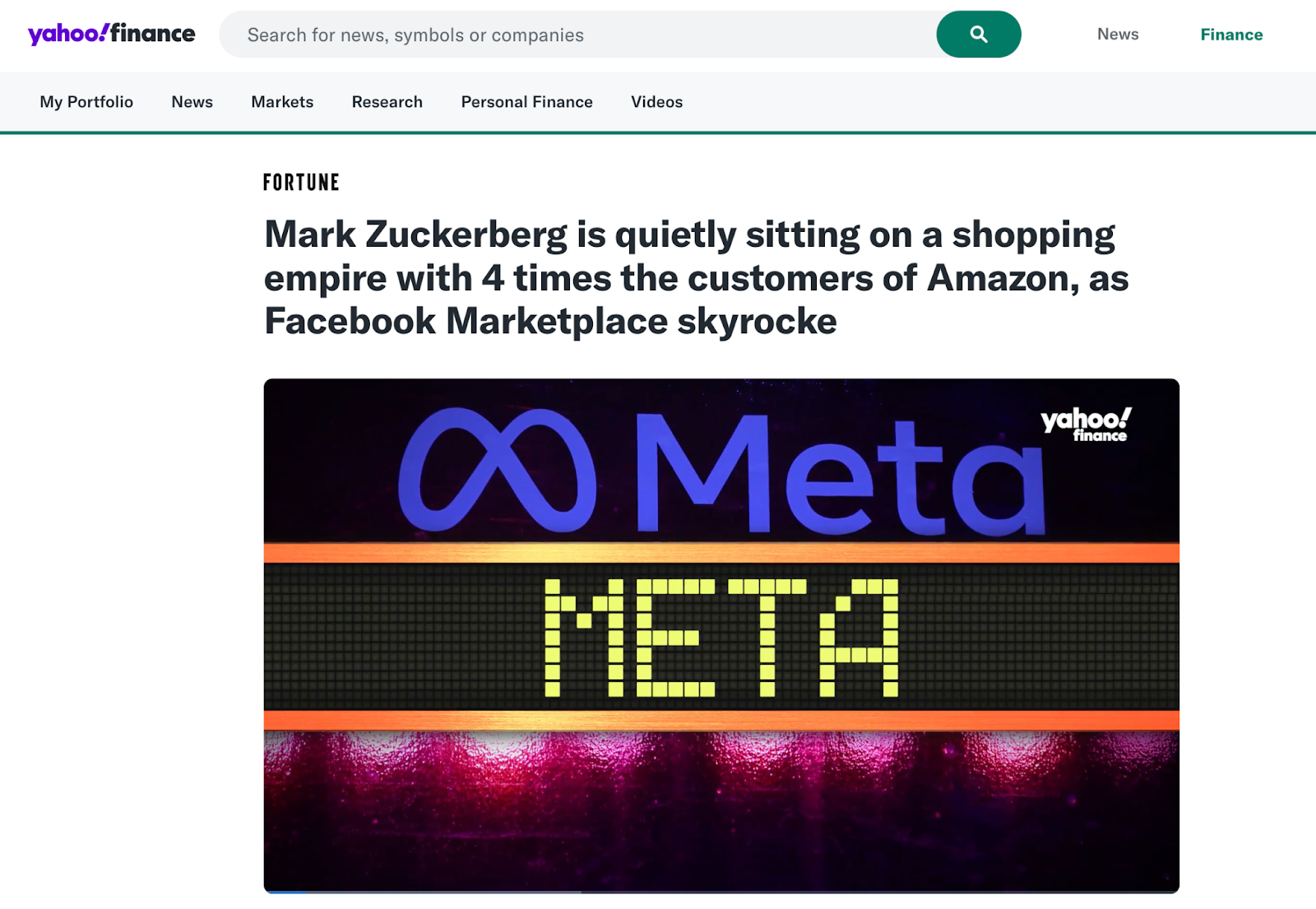
Many platforms differ in terms of reach and the type of users they have, so it’s important to consider these factors. Larger platforms with a broader user base may attract more buyers, especially if you offer a variety of products. However, smaller platforms with a more niche user base may be ideal if you offer digital products or handmade items.
Choosing the platform with the right user base and reach can have a positive impact on the sales of your products.
The fees and costs
Not all alternatives to Facebook Marketplace are free to use. Some platforms may charge listing fees, commission fees, or require subscription plans. Pay attention to what kind of fee (if there's any) you’re dealing with and compare it to what Facebook Marketplace offers.
Even if you end up paying fees, many marketplaces have features that make the extra cost worthwhile for your business.
Product categories
Check what types of products are allowed on the platform. As we mentioned before, Facebook Marketplace restricts listings to physical goods, so if you want to sell digital products or services—like digital artwork, for example—you’ll need a marketplace that supports those categories. Some platforms also allow listings of handmade goods, services, and even online courses.
Payment and shipping options
Consider how the platform handles payments and shipping. Some alternatives offer integrated payment systems and shipping services, making it easier to manage transactions. The best platforms support secure payment options and offer flexible shipping methods.
9 Facebook Marketplace Alternatives
When looking for alternatives to Facebook Marketplace, it’s important to consider the strengths and weaknesses of other platforms, especially in terms of ease of use, reach, and features. Here are some of the best Facebook Marketplace alternatives:
1. Craigslist
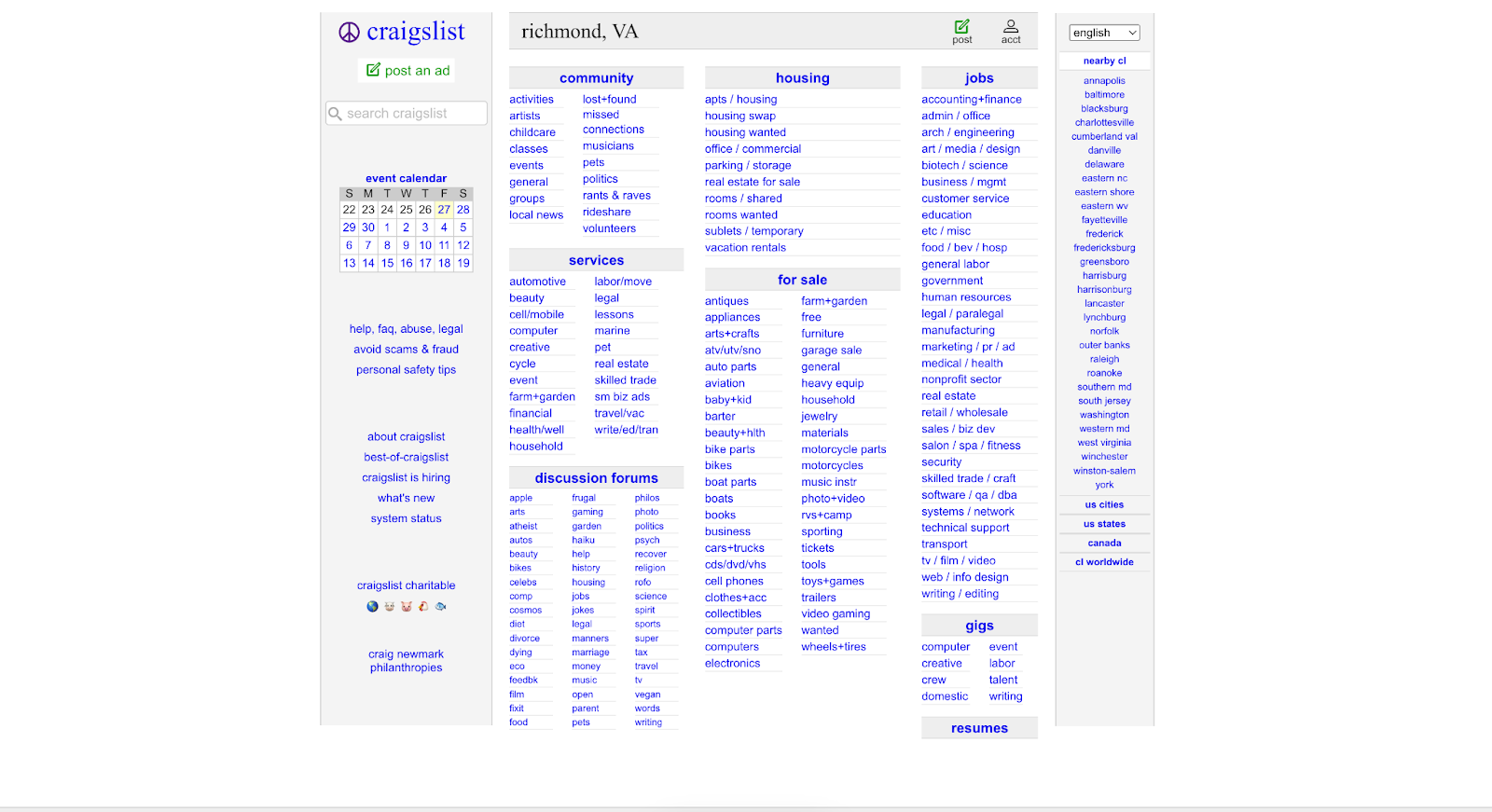
Originally founded in 1995, Craigslist is the original go-to platform for local classified ads, with categories covering everything from jobs and housing to community services and discussion forums. It’s a minimalistic platform that may look strange at first compared to other modern marketplaces, but Craigslist keeps things straightforward with direct buyer-seller communication, typically over email or phone.
Being one of the first platforms for local sales, Craigslist is very popular among sellers offering used items, but it lacks buyer/seller protection and verification, leaving users to manage the risks of scams. And, while it's a free platform for most categories, working well for local “face-to-face” transactions, there's no built-in support for payments or shipping.
Pros:
- Free to list items.
- Wide range of categories.
- Large, local user base.
Cons:
- No buyer/seller protection.
- Prone to scams.
Best for: People who want to sell locally with no fees or need for shipping.
Pricing: Free to use for most categories.
2. eBay
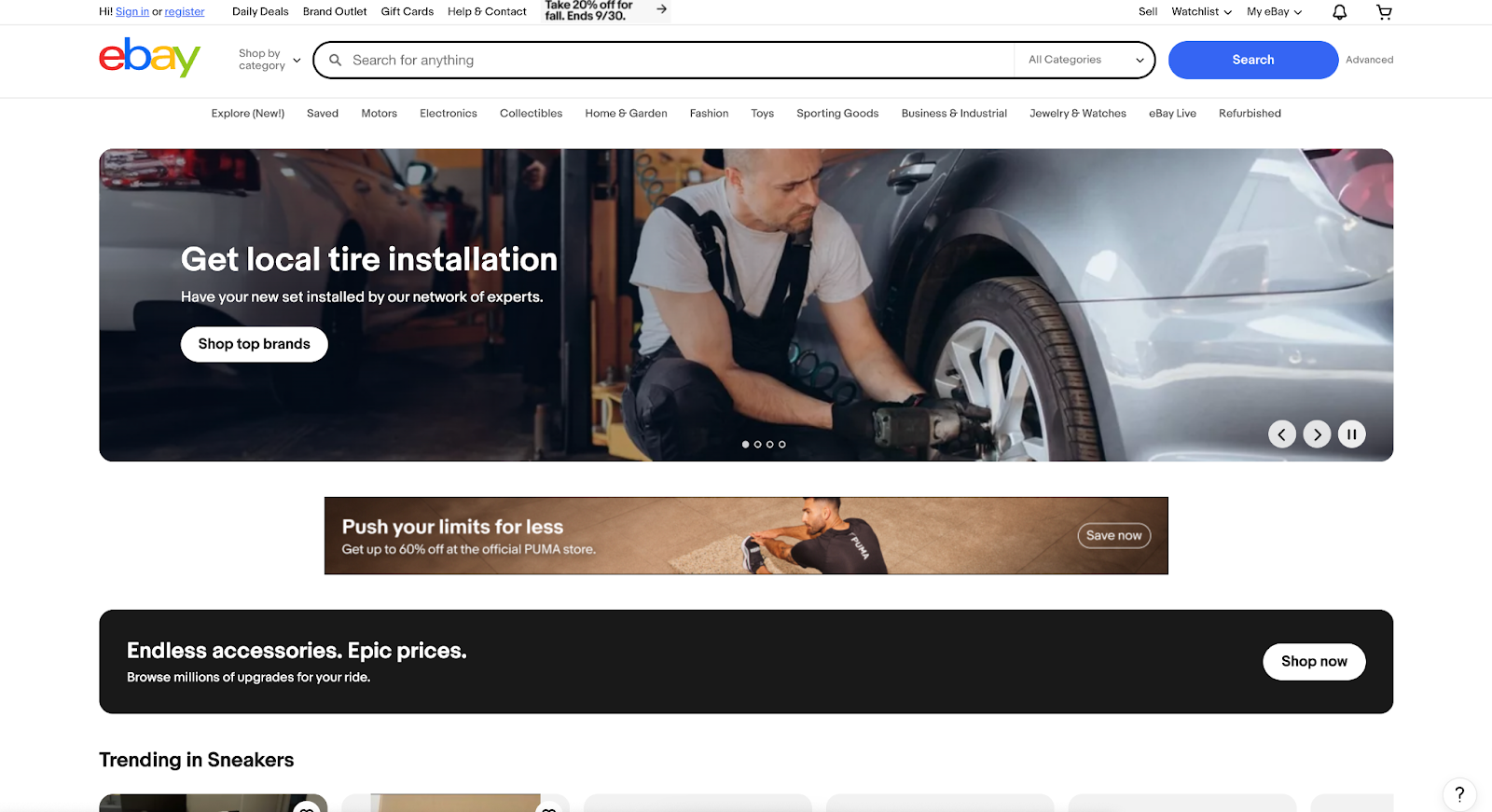
eBay is one of the most established online marketplaces, offering both auction-style and fixed-price listings. Its extensive reach allows sellers to market their items globally, making it perfect for selling (or reselling) collectibles, electronics, and other niche items. eBay’s built-in payment processing and buyer/seller protection features offer a secure platform for transactions of any kind.
The marketplace is great for selling to a broad audience, but the fees can be a downside for sellers looking for a free option like Facebook Marketplace—eBay charges a percentage of both the sale price and shipping. Still, the vast features make it a strong option for sellers looking for a Facebook Marketplace alternative, especially if they want to sell beyond their local area.
Pros:
- Large global audience.
- Integrated payment and shipping options.
- Strong buyer/seller protection.
Cons:
- Listing and selling fees can add up.
- Competitive marketplace.
Best for: Sellers looking to reach a national or international audience, especially for niche items.
Pricing: eBay charges a final value fee (around 10 to 15%) on sales plus listing fees for certain categories.
3. Etsy
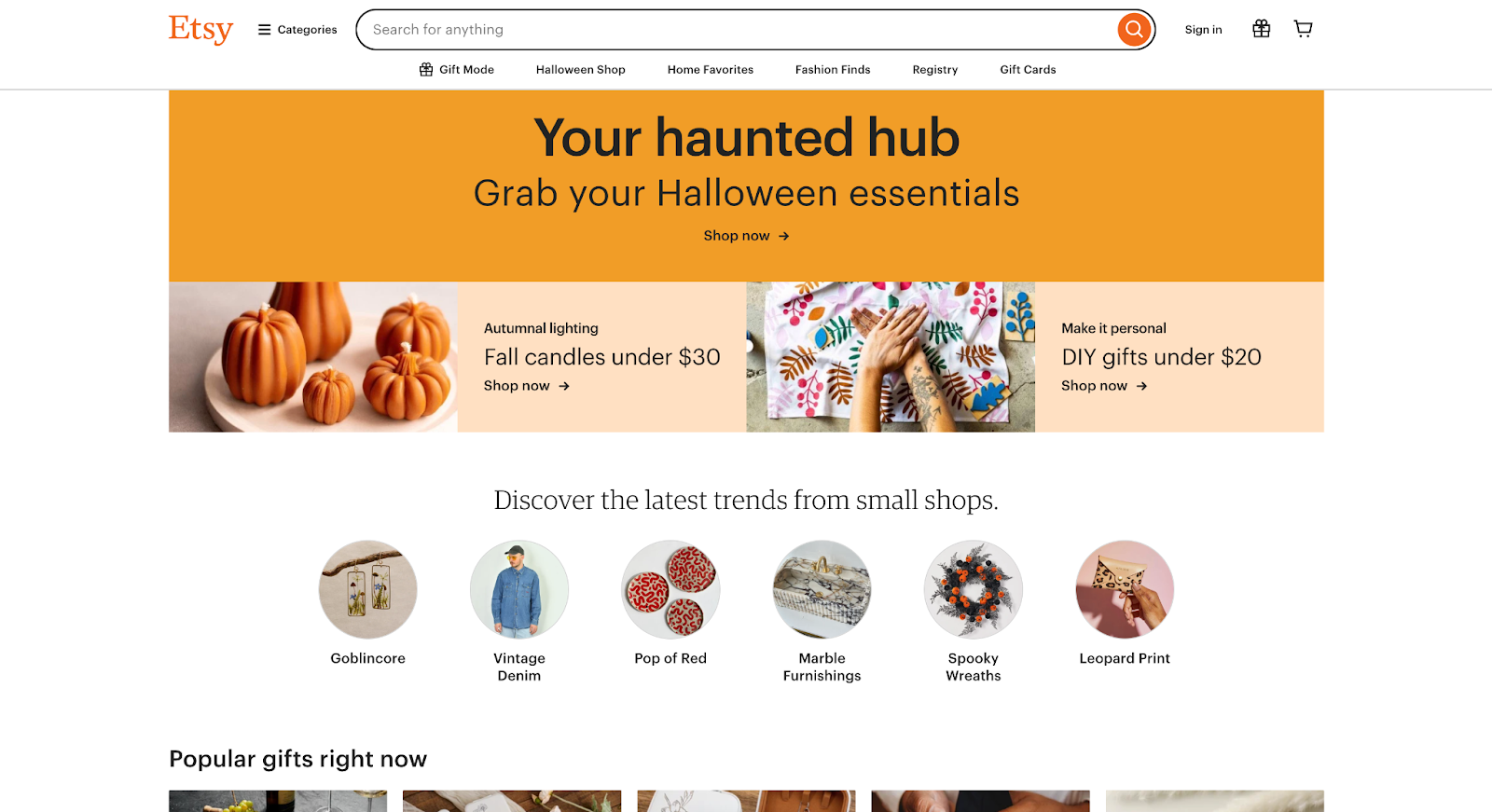
A marketplace specifically tailored to handmade, vintage, and craft items, physical or digital, Etsy gives creative sellers a platform to reach a niche audience with these types of products. Its intuitive interface allows sellers to easily list products, while its payment and shipping tools streamline transactions. It's a marketplace focused on unique, custom items.
It may be limited in terms of the variety of products you can sell compared to Facebook Marketplace, but if what you offer is within the niches of Etsy, it's hard to beat the platform’s targeted reach.
Pros:
- Great for niche, handmade, and vintage items.
- Strong seller community.
- Integrated payments and shipping.
Cons:
- Fees can accumulate, especially on smaller sales.
- Limited audience for non-handmade items.
Best for: Sellers of handmade, vintage, or custom products looking to connect with a targeted audience.
Pricing: Etsy charges a $0.20 listing fee and a 6.5% transaction fee on each sale.
4. Poshmark
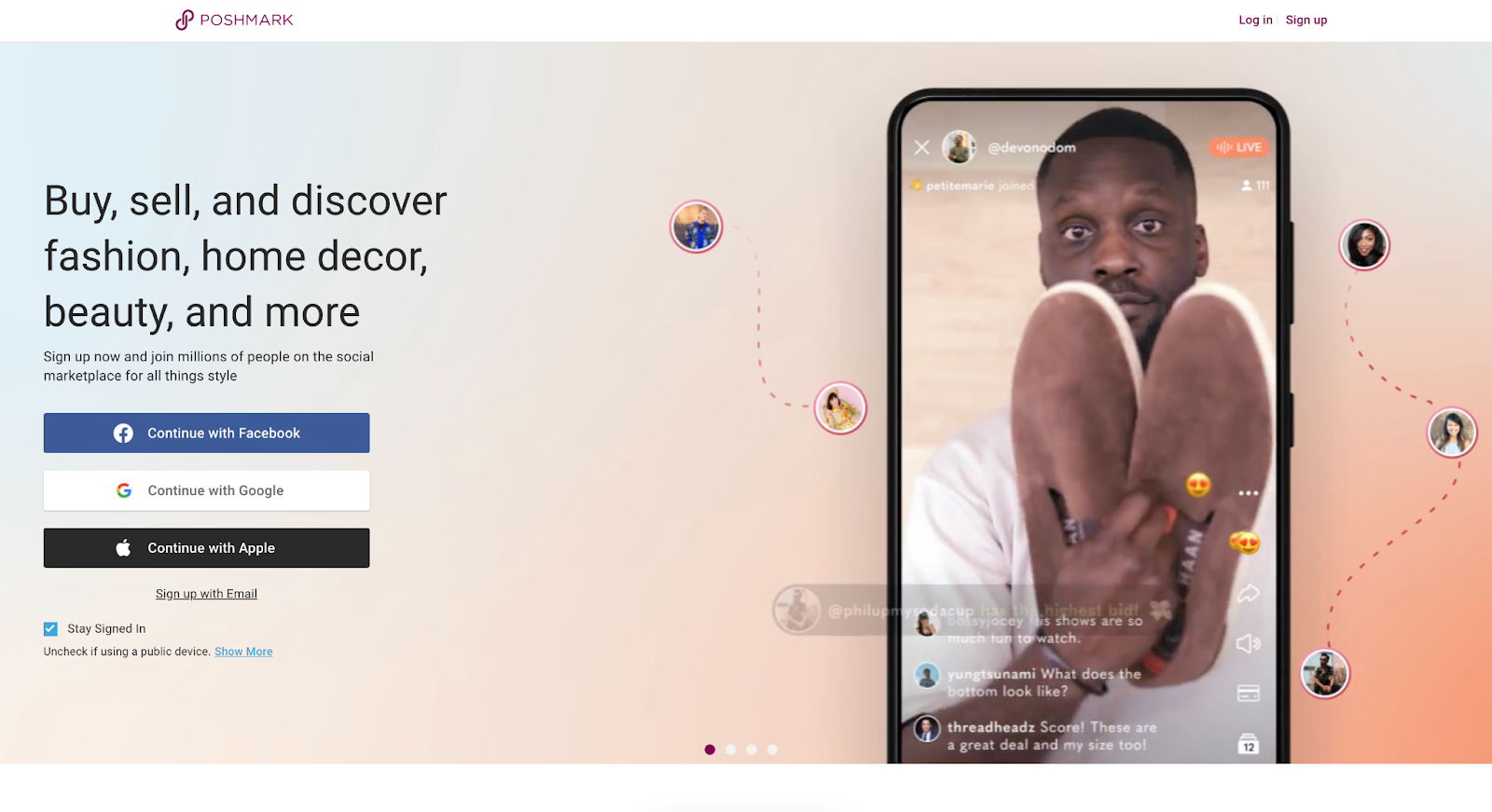
Poshmark is a social ecommerce marketplace that specializes in fashion, making it the perfect platform for selling new or secondhand clothing, sneakers, and accessories in general. The app is easy to use, with built-in social features encouraging engagement between buyers and sellers. Poshmark also simplifies shipping by providing prepaid shipping labels, making it a breeze to handle logistics.
Despite the benefits, sellers looking for a Facebook Marketplace alternative may find Poshmark a bit expensive in terms of fees. The platform charges a selling fee of $2.95 for transactions under $15 and 20% for transactions over $15. It's an excellent option for sellers focused on fashion, but the high fees may deter casual sellers.
Pros:
- Easy to use, especially for clothing and fashion items.
- Built-in shipping solutions.
- Strong social and community focus.
Cons:
- High 20% commission on sales over $15.
- Limited to fashion and accessories.
Best for: Fashion-conscious sellers and buyers looking for a community-driven marketplace.
Pricing: Poshmark takes 20% of sales over $15 and $2.95 for sales under $15.
5. Mercari
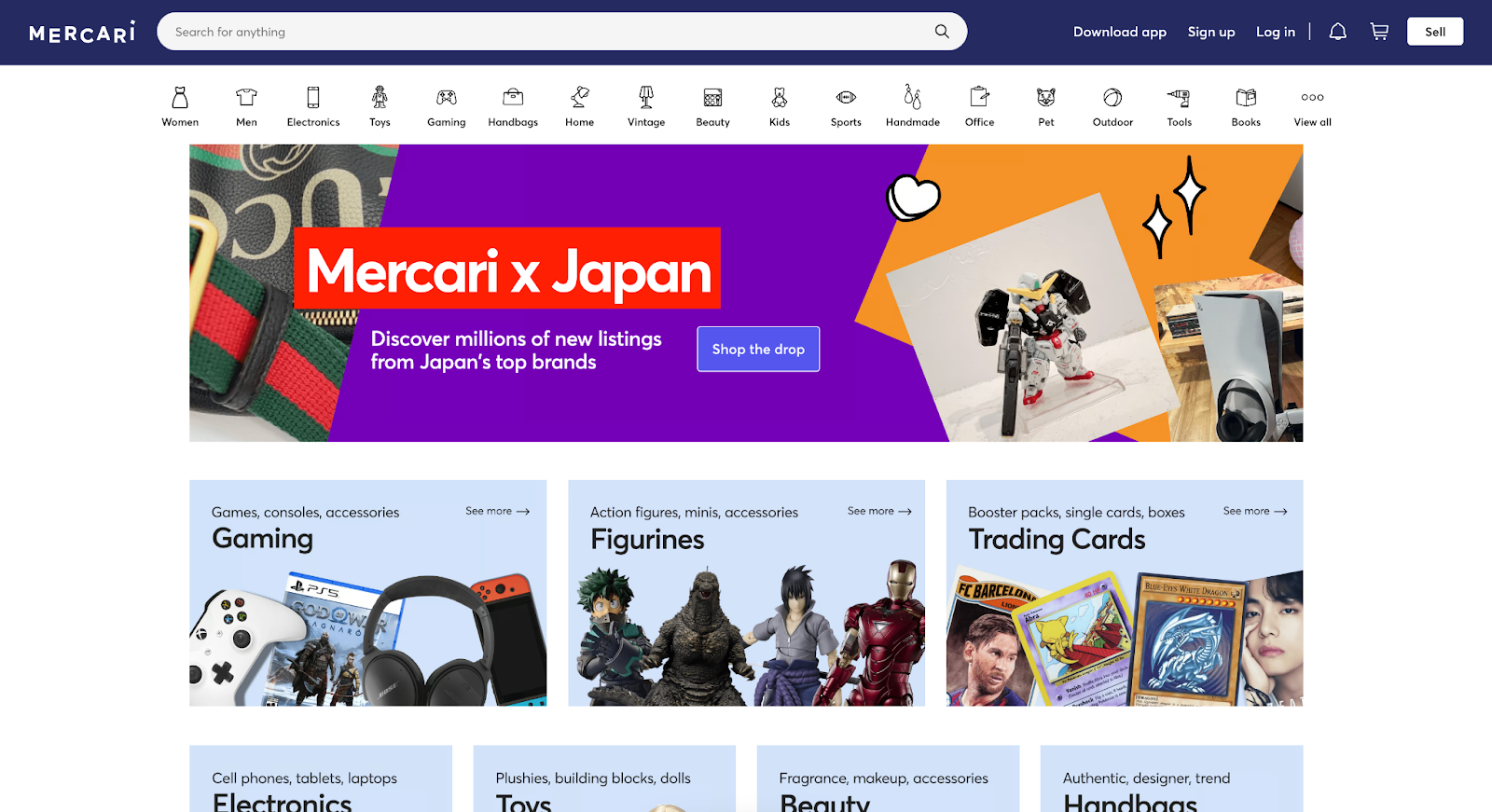
Mercari is a Japanese general-purpose marketplace that shines when it comes to smaller, shippable items like electronics, collectibles, and accessories. Its mobile app offers a smooth user experience protecting both buyers and sellers with built-in payment processing and prepaid shipping labels.
Unlike Facebook Marketplace, Mercari is a platform focused on long-distance sales, making it more suitable for smaller, easily shippable items. Also, consider that Mercari doesn't charge listing fees but has a payment processing fee of 2.9% plus $0.50 per sale.
Pros:
- Easy-to-use app with built-in payments.
- Prepaid shipping labels.
- Buyer/seller protection.
Cons:
- Focuses more on shipping than local sales.
Best for: Sellers looking to offload smaller, shippable items with minimal hassle.
Pricing: A payment processing fee of 2.9% plus $0.50 per sale, charged based on the sale and shipping price.
6. OfferUp
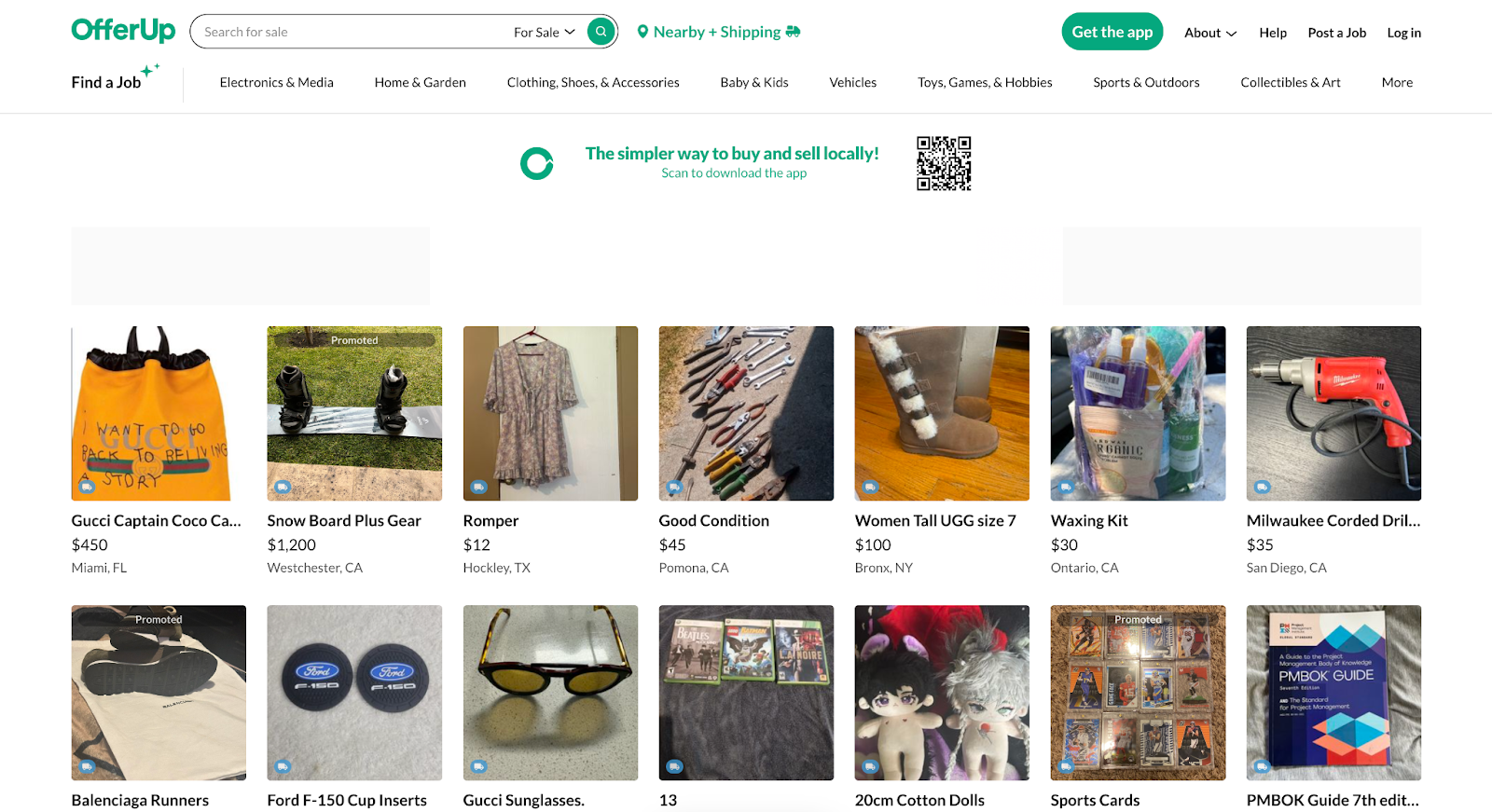
OfferUp is a marketplace that focuses on local, mobile-first transactions, making it a strong alternative for those who prefer Facebook Marketplace’s face-to-face exchanges. It has a built-in messaging system for negotiations and the possibility to rate buyers and sellers, adding a layer of trust to each transaction.
While OfferUp is a free marketplace primarily for local sales, it also offers shipping services that take 12.9% of the final price of an item. It's a great alternative to Facebook Marketplace, with the only real downside being that it doesn't work in some countries.
Pros:
- User-friendly mobile app.
- Local focus with shipping options.
- User ratings for trust-building.
Cons:
- Charges fees for shipped transactions.
- Lacks strong buyer protection.
Best for: Local sales and users who prefer in-person transactions but want the option to ship.
Pricing: Free for local sales, but takes a 12.9% fee for shipping transactions.
7. Nextdoor
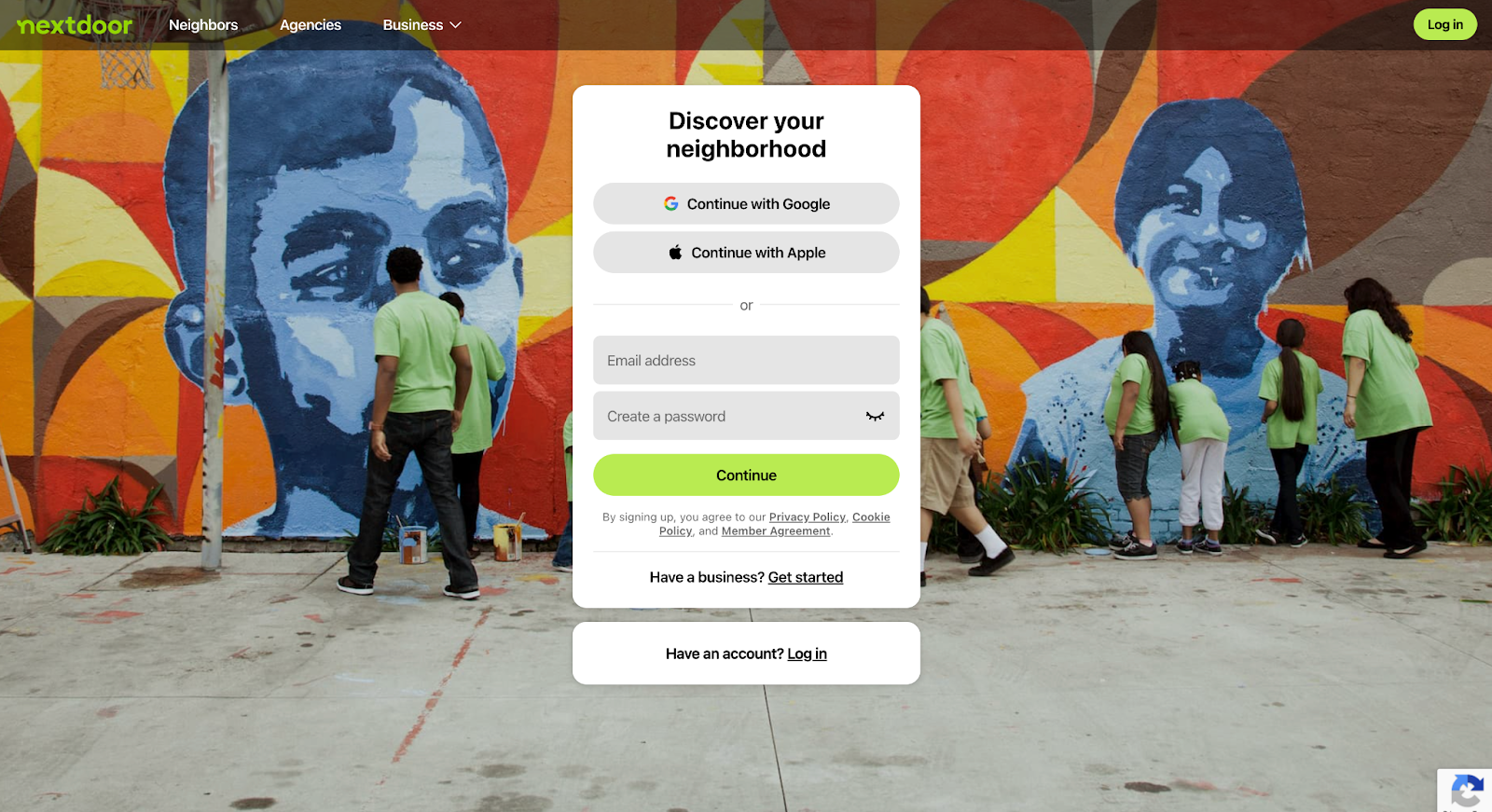
Nextdoor is a hyper-local marketplace bringing a community-based approach to buying and selling by focusing on neighborhoods. It’s excellent for people looking to offload household goods or find items nearby. Additionally, since its sellers are verified members of their communities—properly registered on the platform—it’s a marketplace that presents itself as more secure than other similar platforms.
Despite being free, relatively safe, and strengthening local community commerce, it’s smaller in reach than other platforms. It’s not ideal for those looking to sell to a broader audience.
Pros:
- Focuses on community-based, local sales.
- User verification builds trust.
- Easy to find nearby items.
Cons:
- Limited to local neighborhoods.
- Smaller audience than national platforms.
Best for: Local sellers who want to deal with trusted members of their community.
Pricing: Free to use.
8. ThredUP
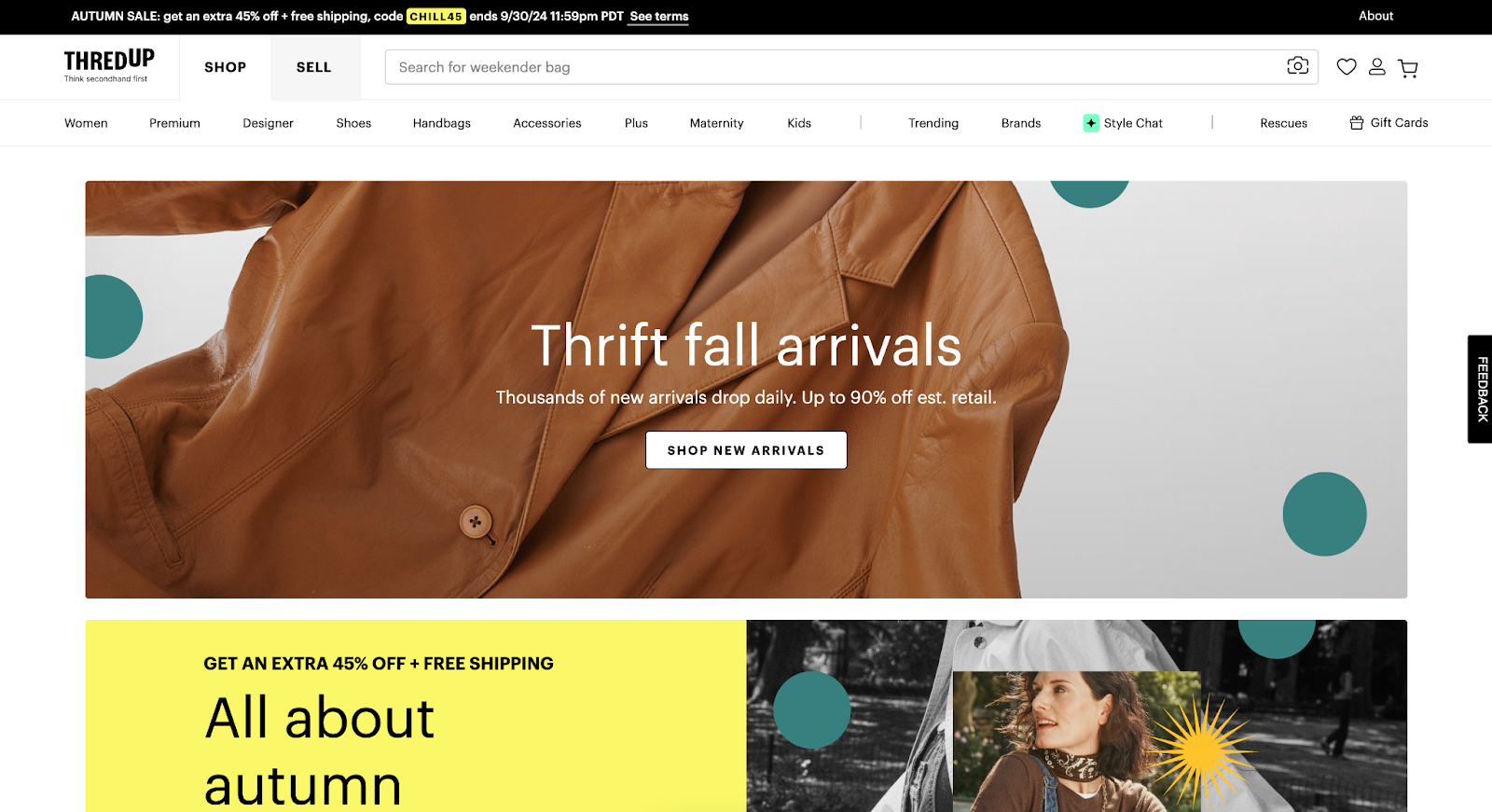
Focused exclusively on selling second-hand clothing, ThredUP has a very interesting sales system that requires practically no effort from the seller. The platform sends you a “clean-out kit” and you ship the items you want to sell to them for free. After that, ThredUP handles the selling process for you, listing and shipping accepted items without you having to do anything. Items accepted have a 30- or 45-day listing window, depending on the brand.
Despite the convenience, the platform takes up to 80% commission on lower-priced items. It’s ideal if you have a lot of clothes to offload and don’t want the hassle of listing each item yourself, but the payout can be significantly less than selling directly on other platforms like Poshmark or Mercari.
Pros:
- Convenient, hassle-free process.
- Free clean-out kit provided.
- ThredUP handles selling for you.
Cons:
- High commission fees (up to 80%).
- Slow payout process.
Best for: Sellers looking to declutter their wardrobes without managing individual listings.
Pricing: Varies depending on the brand and selling price.
9. 5miles
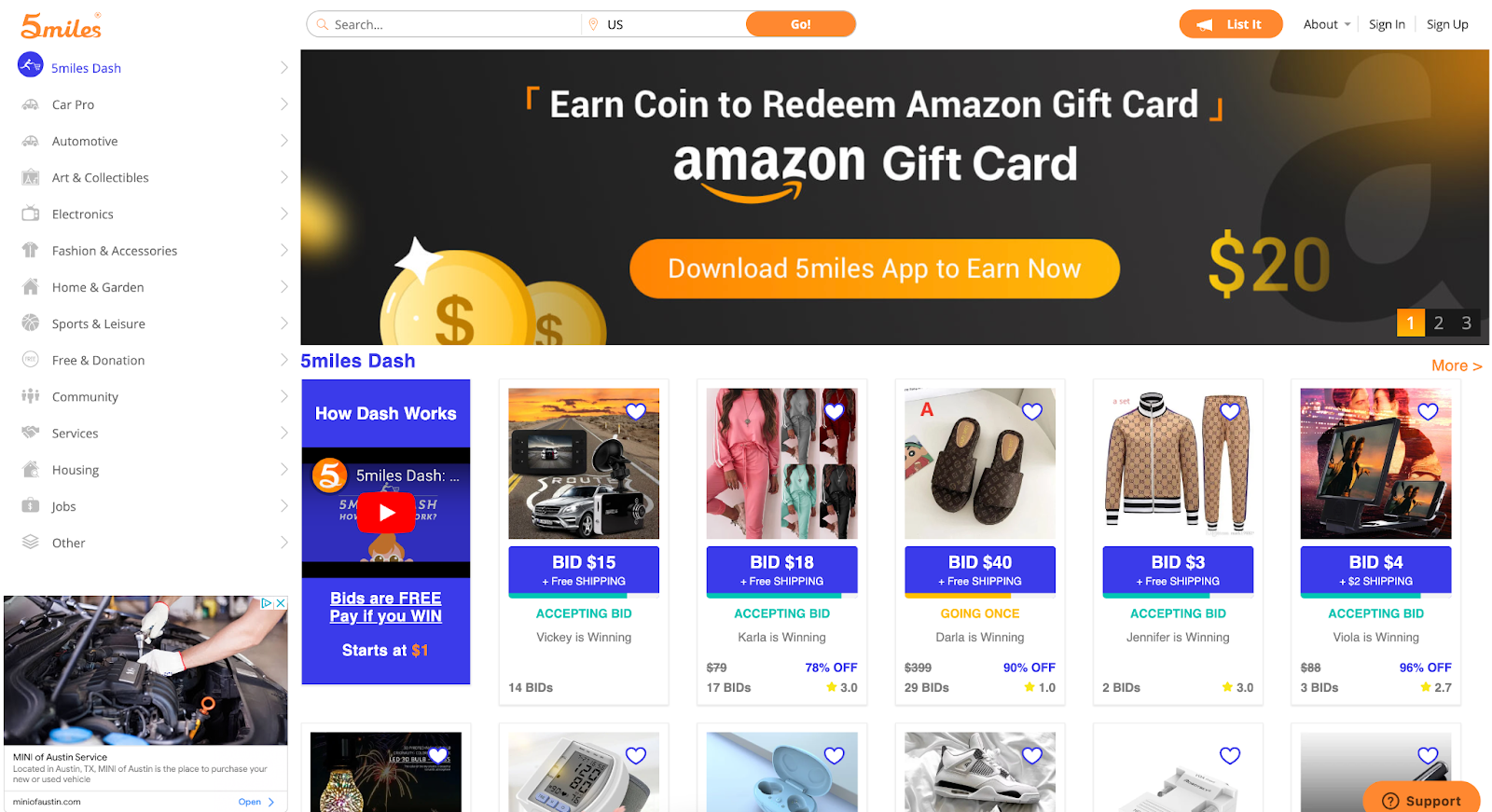
5miles focuses on enhancing safety in local transactions by verifying users and providing secure communication features, making it a safer alternative for face-to-face sales. The app’s interface is easy to use, offering location-based listings that prioritize nearby items. Categories cover a wide range, from furniture to electronics, making it versatile for different types of sellers.
Additionally, 5miles includes features like garage sale postings, local services, job offers, and even pet adoption, giving a broader community feel. Despite that, its user base is still smaller than some other platforms, so if you want to sell items that don’t appeal to a wide audience, it may take a while to find buyers.
Pros:
- Verified users for added security.
- Easy-to-use, proximity-based listings.
- Features like garage sales and local services.
Cons:
- Smaller user base compared to larger marketplaces.
- Limited reach for national or international sales.
Best for: Local sellers who prioritize security and want a more community-focused platform.
Pricing: Free to list items, though there are optional paid features for boosting listings.
Learn How to Sell Anything Online With Whop
No matter what platform you're going to sell on, with Whop you can learn to make money anywhere. Whop offers a wide array of learning materials, including access to expert-driven private communities and courses that provide valuable insights, helping you transform your skills into a profitable business.
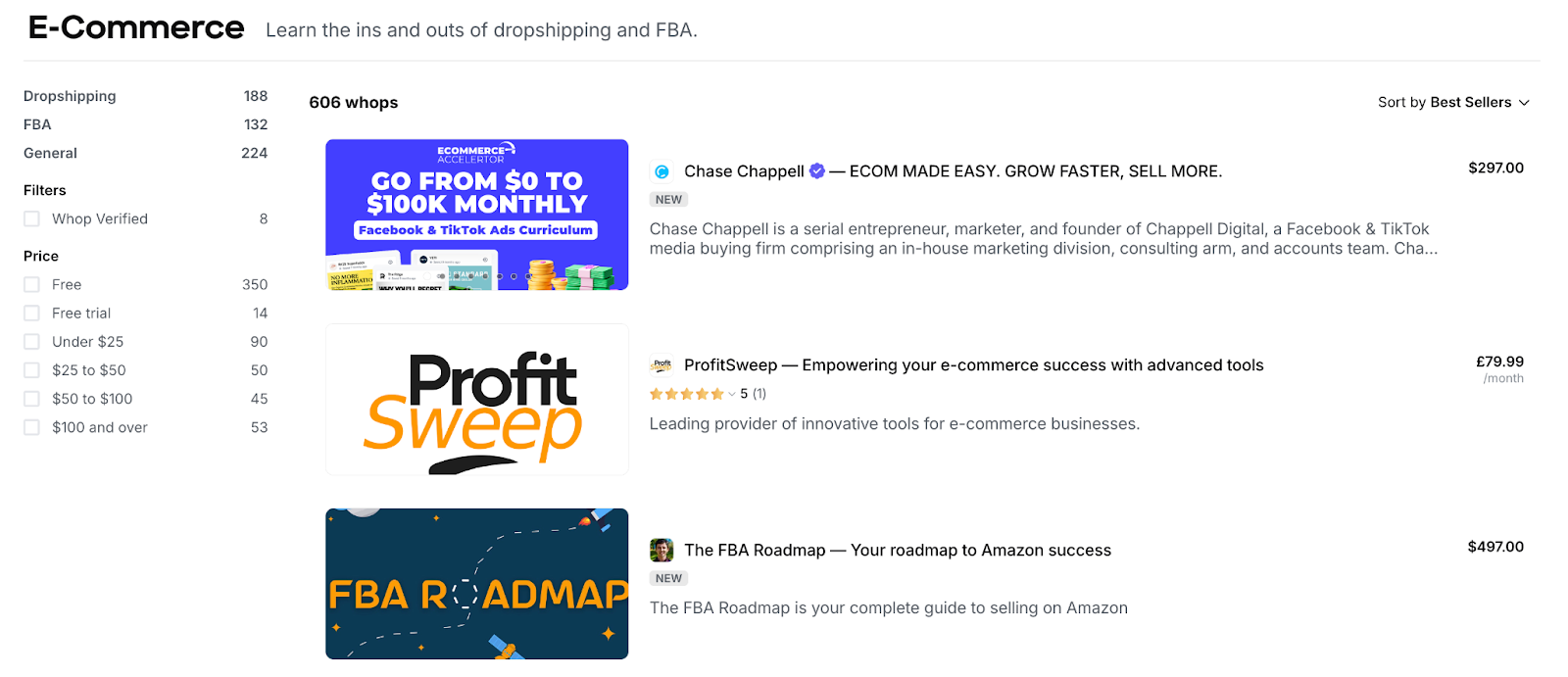
Whether you're just getting started or aiming to grow your ecommerce business to the next level, you'll find everything you need to achieve your goals. With categories ranging from dropshipping to other niche business models, Whop’s marketplace is regularly updated to keep you ahead of the curve.
Thousands of entrepreneurs have already leveraged Whop's resources to boost their businesses. Join Whop and achieve your ecommerce dreams.
Facebook Marketplace Alternatives FAQs
The frequently asked questions about Facebook Marketplace alternatives.
Which platform has the lowest fees compared to Facebook Marketplace?
If fees are a concern, platforms like OfferUp and Craigslist often have low or no fees for local sales. Mercari and eBay have selling fees but offer different structures depending on the product type and shipping methods.
Why should you trust us?
Joe Niehaus is a content writer at Whop with extensive experience in ecommerce and marketplace management. His writing expertise has also been featured in leading publications like GQ, Travel + Leisure, and Business Insider.


